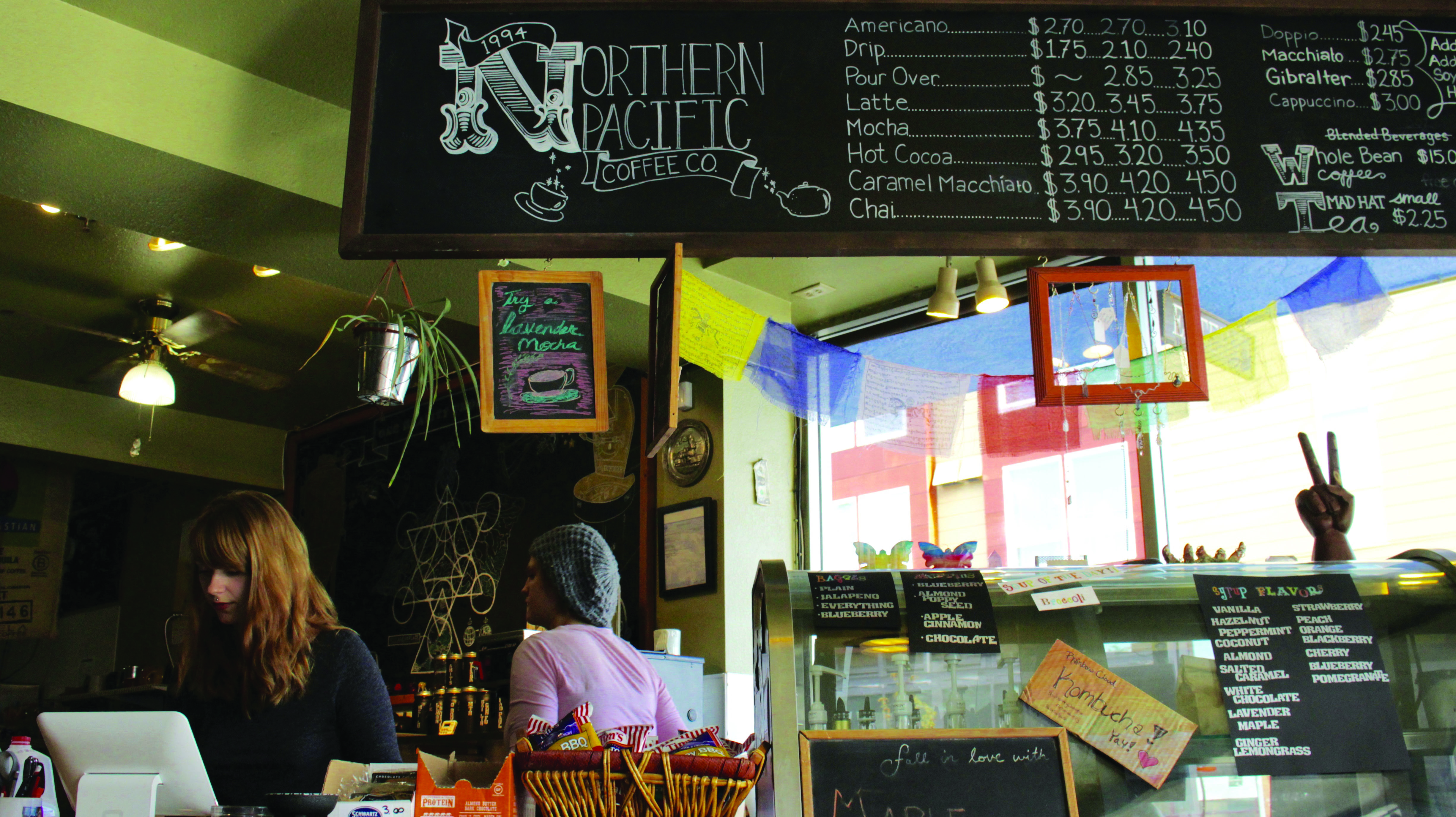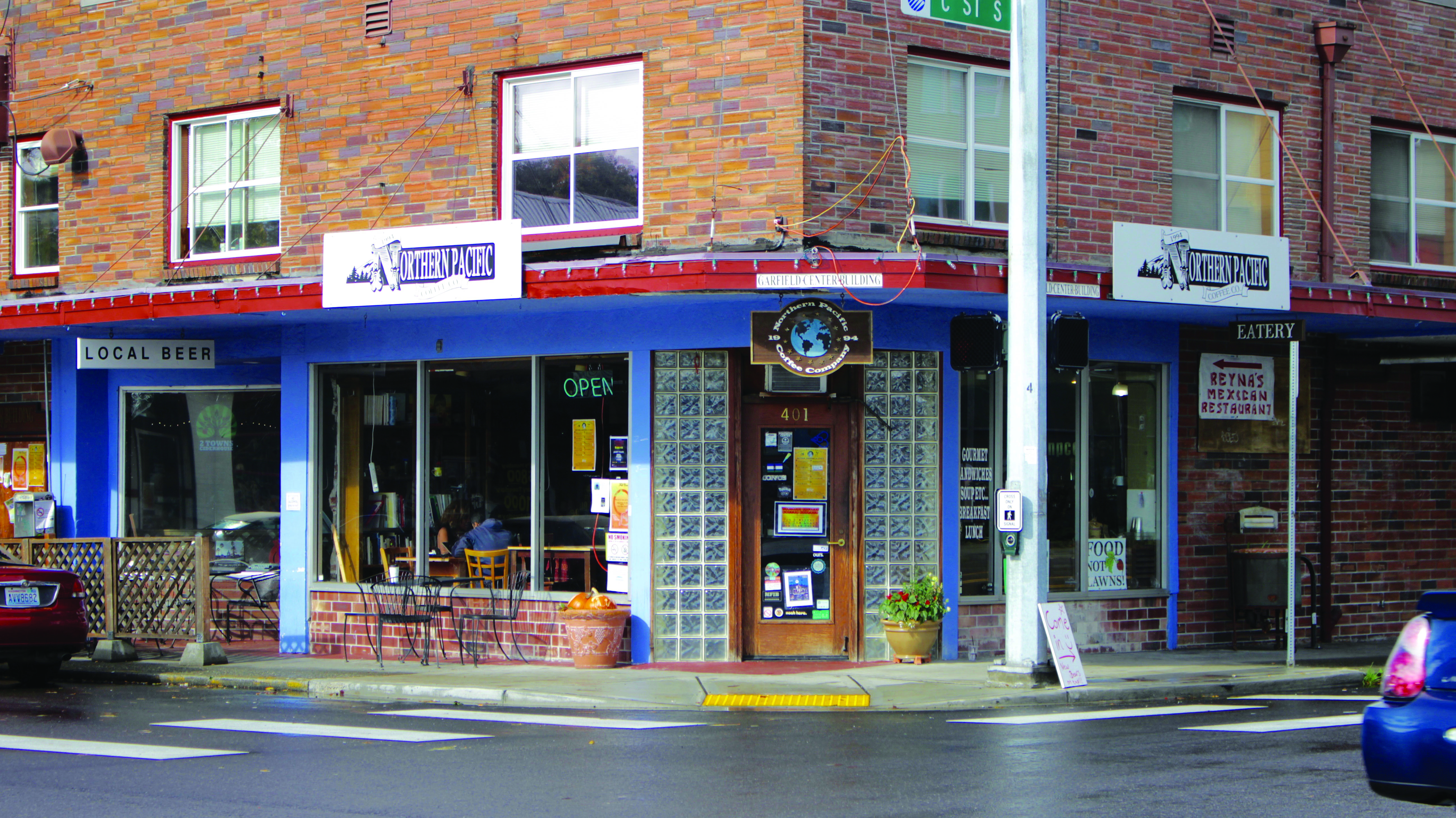PARIS FRANKIN; Culture Editor; franklpm@plu.edu
As a student, it’s easy to feel like Parkland revolves around Pacific Lutheran University. While this is somewhat true —the area developed when Norwegian-Americans established the college here in the late 1800s —Lutes often forget about the world that surrounds the campus bubble.
At just over seven square miles, Parkland is a compact area of unincorporated Tacoma that houses over 35,000 people (according to the 2010 United States census). Lutes represent 10 percent of Parkland, meaning there’s a whole population of people that students don’t always have a chance to interact with on campus.
What some say makes Parkland so special is the opportunity for people of all backgrounds to connect with one another through local businesses.
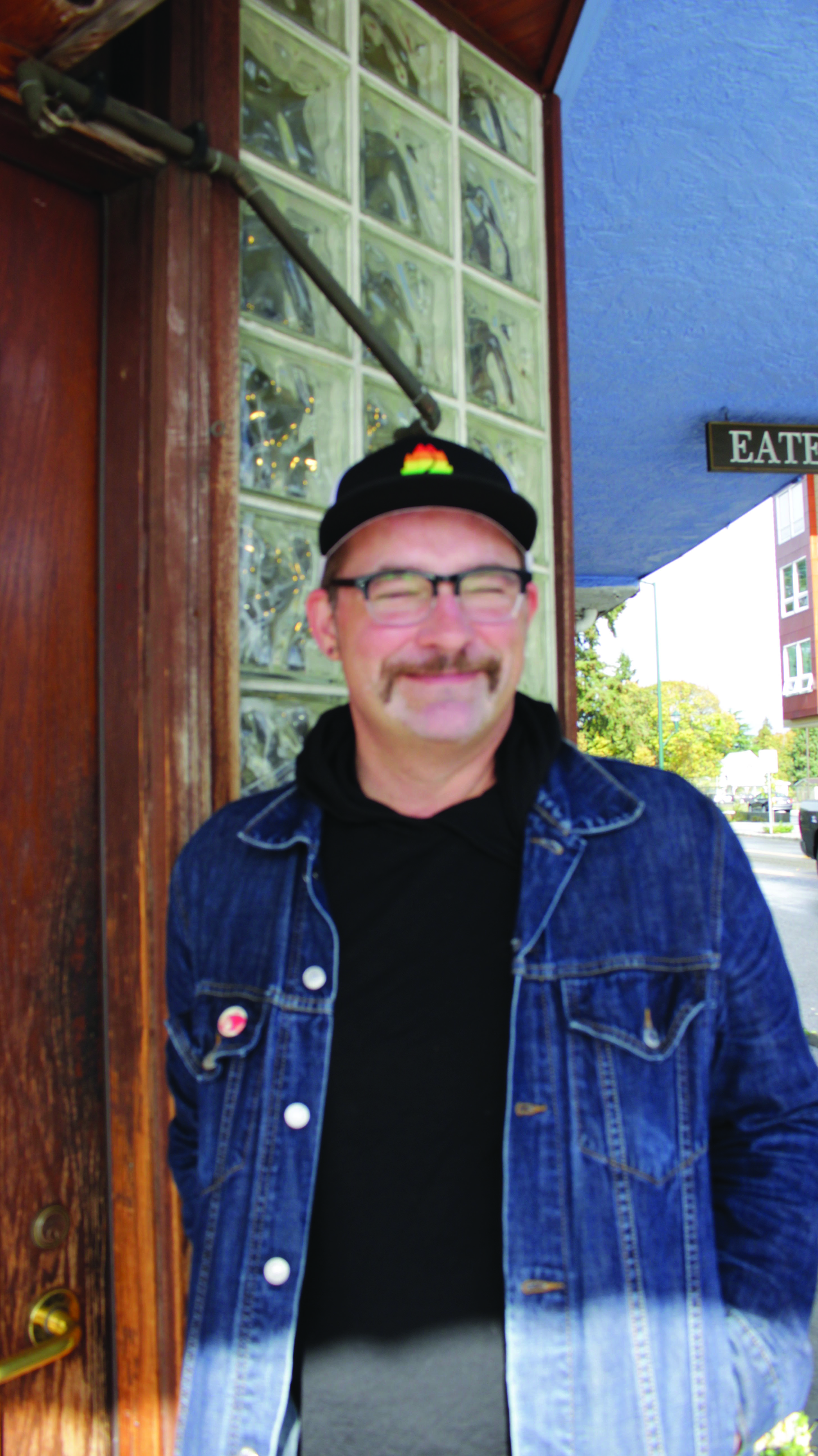
– Robert Smith, general manager
“Everything we do here is really centered around the community we’re in,” says Sarah Schofield, a PLU alumna, nursing faculty member and owner of Northern Pacific Coffee Company, also known as NPCC or NoPaCoCo.
Schofield believes that something as small as a coffee shop can greatly impact those who have access to it.
“I started coming here when I was a student … and this community really took me in. I had friends here all of a sudden, just the regular people who came in, and those friends turned into family in a way.”
In recent years, however, NPCC has not always been available to Parkland residents due problems with management and lack of profit.
“It’s a very difficult area financially because Parkland is so low socioeconomically. It’s very difficult to have a thriving business here on Garfield Street,” Schofield says. “The last time it closed, the community kind of went into crisis.”
Schofield took over the closed-down shop in January 2016 when she saw how important the business was for Parkland residents and PLU students alike.
“This place means a lot to a lot of people here in the community,” says Schofield.
While Schofield is the new owner, she believes that NPCC would not be around today if it wasn’t for the community’s help. She credits Parkland residents and thanks them for the labor, efforts, time and money they poured into reopening NPCC.
“We’ve been open now for nine months and we are still learning and growing and improving, and it still takes a huge community effort which is kind of the spirit of this place.”
In order to get the shop up and running again, Schofield brought on general manager Robert Smith, who has worked in the coffee industry for 23 years. Smith’s biggest goal is to put the cafe on the map and “really activate the community.”
To do so, Schofield and Smith are currently making arrangements for a new project known as NoPaCoCo Live. They believe livestreaming events in the shop will provide people in Parkland the opportunity to gain exposure to a wider audience. “It is so important because we have a stage here where people creatively express themselves.”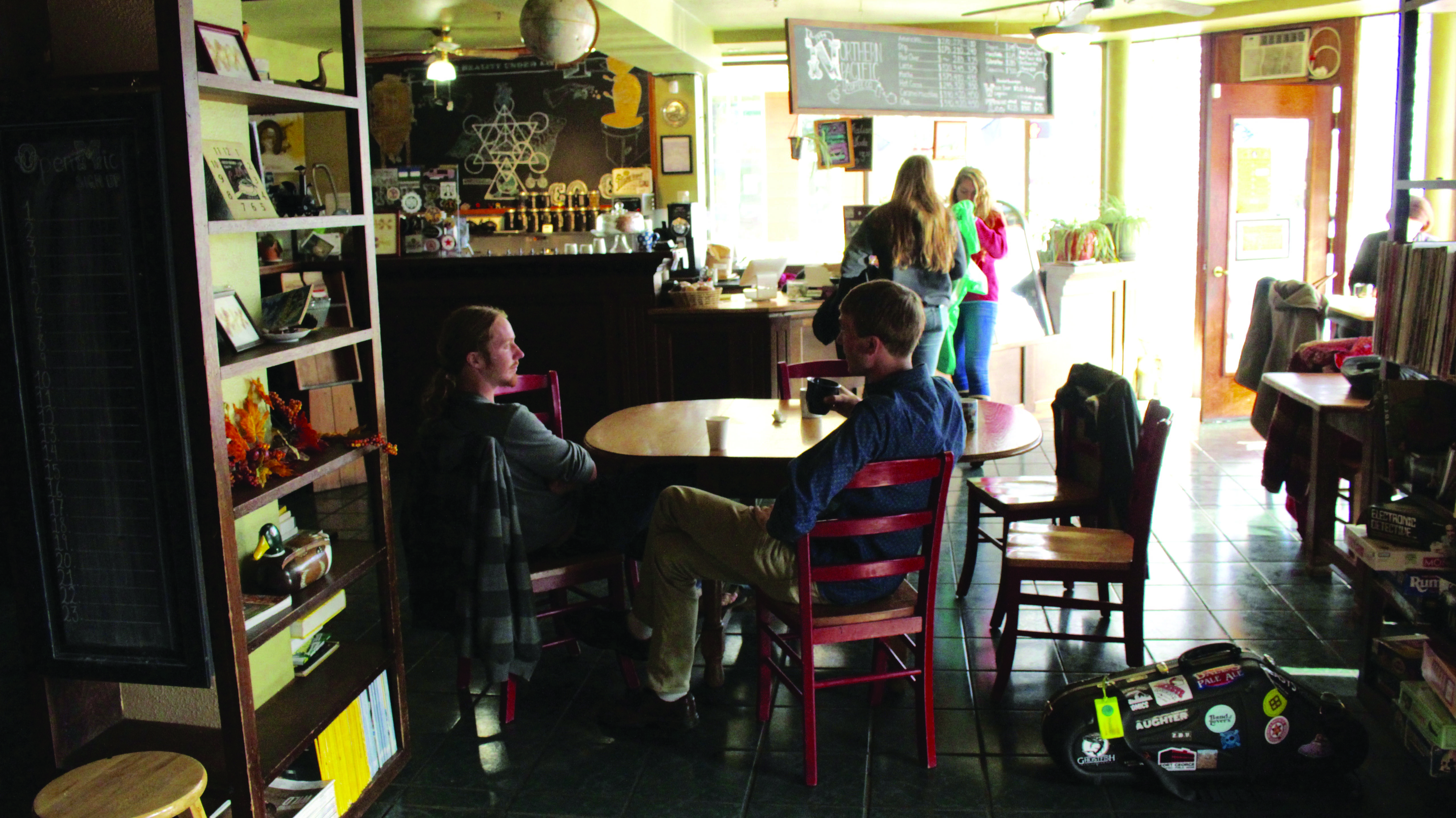
“[NoPaCoCo Live] should be really big and really give people a platform,” Schofield says. It’s for people who don’t have the means of accessing a larger platform, whether it’s on TV or the radio. We want them to come here and show the entire world what they have to offer.”
Smith also notes how important NPCC is for the area. “It is a hub for people in the community. It feels like a second home. This is family for a lot of people.”
Smith noticed immediately how much people enjoy NPCC’s live music and the atmosphere. He thinks an event like NoPaCoCo Live will “uplift a depressed community,” because “music is how people are inspired.”
Both Schofield and Smith note how incredibly talented NPCC-goers are and how proud they are each Open Mic Night. “There is incredible talent in this little pocket of Pierce County,” Smith says.
Smith’s first day of work was on an open mic night, and after witnessing his first open mic, he was shocked. “My jaw literally dropped. These people are treasures in the community with no other public access. I want … these people to have a chance at being seen.”
In order to get NoPaCoCo Live together, Smith and Schofield have tried to elicit as much assistance from Lutes as possible. “I want to create a PLU student team,” Smith said. He believes that having help from students will be mutually beneficial: NPCC gets to create a network where students get professional experience to put on resumes.
Schofield also notes the importance of working with students to make the project successful. She especially wants students to know that “they are also welcome to make this place their home as much as other people in the community [do].”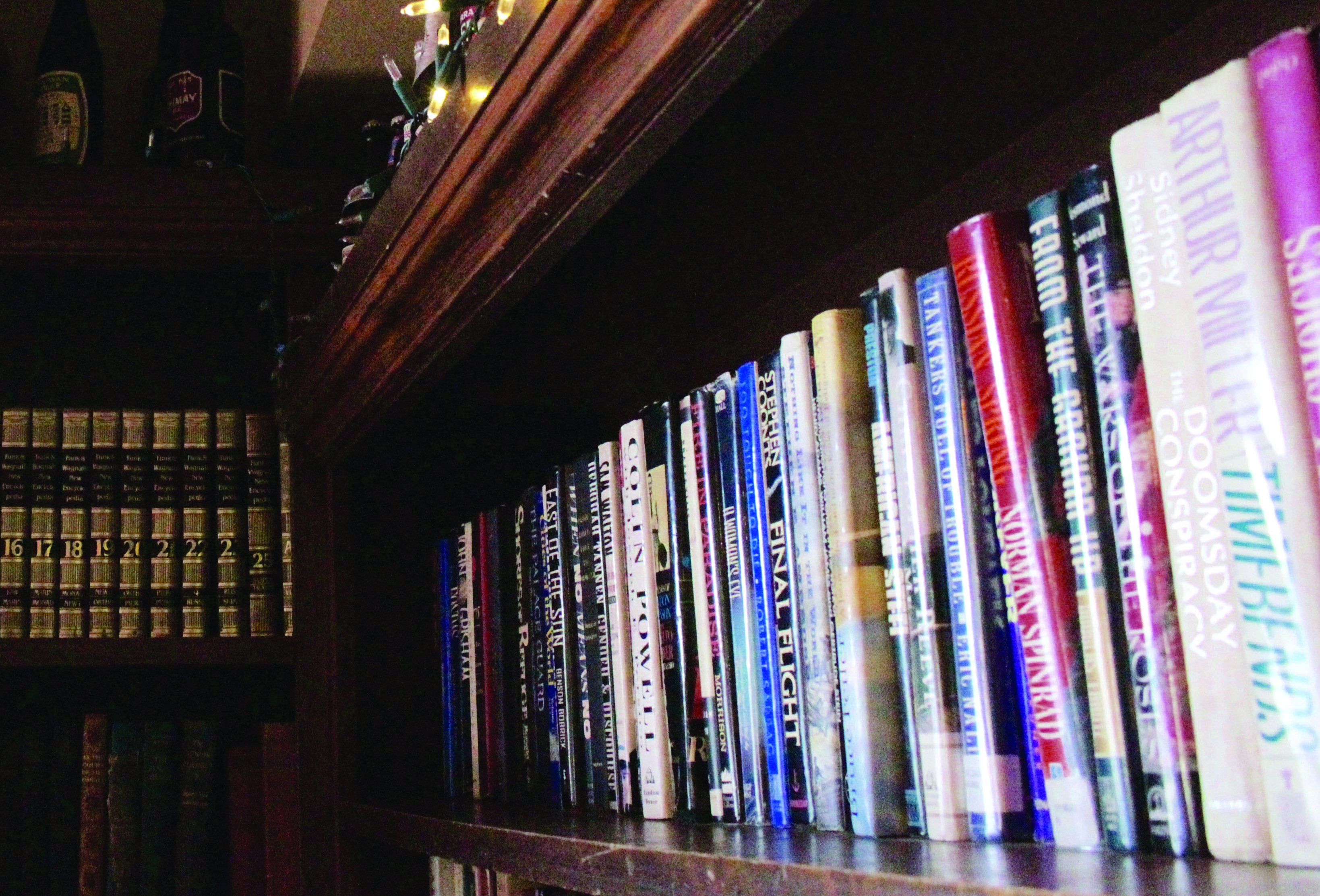
Smith mainly aims to let performers build confidence in performing live, get excited and have some exposure.
“It’s a really great place for people to have a creative outlet as well as a social outlet,” Schofield says.
Smith also says NPCC is one of the only all-ages venues in Parkland. He believes it will be a place for first-timers to get their start.
“I want [artists] to be able to get out of Parkland. I know how difficult it is for people.”
In addition to their work with students and people living in Parkland, NPCC has tried to incorporate other small businesses into their kitchen. NPCC’s coffee is all sourced from local roasters. Their bagels come from a very small family business in Lakewood and their tea comes from a family business in Tacoma. “We are a community hub and help others out,” Smith says.
Much of what Schofield and Smith have done to NPCC since the reopening, they’ve done with the Parkland and Lute communities in mind, including later hours to allow students to study off campus.
“I just want to make this place a great place for students to come. I want them to feel safe here,” Schofield says. “They can gather and hang out here, and honestly PLU students need it. There is not a lot on campus that offers what this place does in terms of creativity, music and social connections with the community.”
“This is a safe place for diversity,” Smith said. “This is a place to celebrate that.”

















